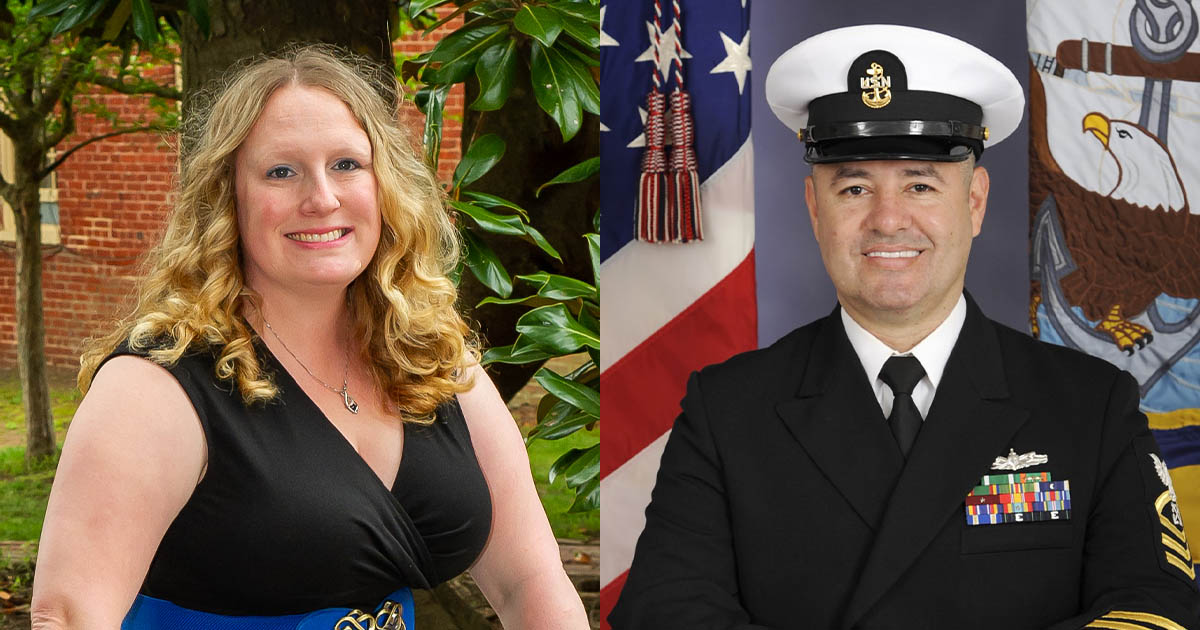SU's SUDWE Fellowship Aims to Graduate More Counselors to Meet State Needs
SALISBURY, MD---Maryland ranks 12th in the nation in drug overdose mortality, according to 2021 data from the Center for Disease Control and Prevention (CDC).
With 2,737 drug related deaths cited in the data, the need for resources, programming and substance use disorder professionals in the state is at an all-time high.
Salisbury University’s Center for Healthy Communities and School of Social Work have dedicated resources to graduate more professionals in the field through the Substance Use Disorder Workforce Expansion (SUDWE) Fellowship.
With grant support from the Maryland Behavioral Health Administration, SU, along with programs at Morgan State University and the University of Maryland, Baltimore, uses the SUDWE Fellowship to provide evidence-based interventions in the substance use treatment field for M.S.W. students in their specialized year of study who are committed to working in integrated behavioral health settings.
SU M.S.W. students and graduating 2023 SUDWE fellows Juan Naranjo, of California, MD, and Jessica Marsh, of Chestertown, MD, are embarking on new substance use disorder counselor careers, motivated by firsthand accounts of the drug epidemic in their previous careers.
Naranjo is expanding his work to civilian areas of his home region in Southern Maryland, following his retirement from the U.S. Navy after 22 years of service as a chief petty officer and substance use counselor.
“I knew I wanted to continue this important work long after my military service,” he said. “Continuing my education to become a licensed social worker in this specialty allows me to do what I love while serving the broader community.”
Naranjo currently works for the St. Mary’s County Health Department in the Harm Reduction Program and will continue to serve as a substance use counselor upon graduation.
“Exploring different treatment models from those used in the military has been such an eye-opening experience,” he said. “The opportunity to navigate from a medical approach to a more long-term, meet-people-where-they-are approach is a validating way to not only keep people safe, but to keep them alive at every step of their journey. This work allows us to tell people they don’t have to be perfect, and it’s never a bad time to seek help.”
“I think it speaks volumes to Juan's commitment to helping others that after a career serving our country he is pursuing employment in civilian substance use disorder treatment,” said Dr. Ryan Messatzzia, LCSW-C and SUDWE project manager. “He brings a wealth of knowledge and enthusiasm to the field.”
Marsh, a retired law enforcement officer who suffered a career-ending, on-duty accident that resulted in a traumatic brain injury, dedicated the next chapter of her life to help those she saw firsthand struggling with substance use disorders while patrolling her community.
“Throughout my career, I lost count how many drug overdoses I responded to,” she said. “Witnessing the devastating impact these losses and close calls had on families made me want to take the obstacle I faced when having to unexpectedly choose a new career to do something that still allowed me to make a difference in lives, in hopefully the earlier stages of these disorders before it’s too late.”
Marsh currently works for the non-profit mental clinic Corsica River as a substance use disorder counselor and will transition to a licensed therapist with the organization upon graduation.
“The Mid-Shore is such a rural, underserved community, and often, over-prescription is an unfortunate solution in areas that are lacking resources,” she said. “At Corsica River, we take a different approach and focus on accessibility and compassion, such as offering mobile clinics for those who can’t leave their homes or have trouble keeping appointments.”
“Jessica shows a tremendous passion for substance use disorder treatment,” said Messatzzia. “Her background in law enforcement gives her a nuanced perspective of the opioid epidemic, and she uses that experience to inform her clinical practice in a caring, non-judgmental manner.”
SUDWE fellows receive education and training in evidence-based practices regarding substance use disorders; a financial stipend to assist with tuition costs; potential eligibility for certain loan repayment/loan forgiveness programs due to the one-year commitment to work in public service requirement; license and exam fee reimbursement; and other professional resources.
For more information on the SUDWE Fellowship visit the program webpage.
Learn more about SU and opportunities to Make Tomorrow Yours the SU website.

